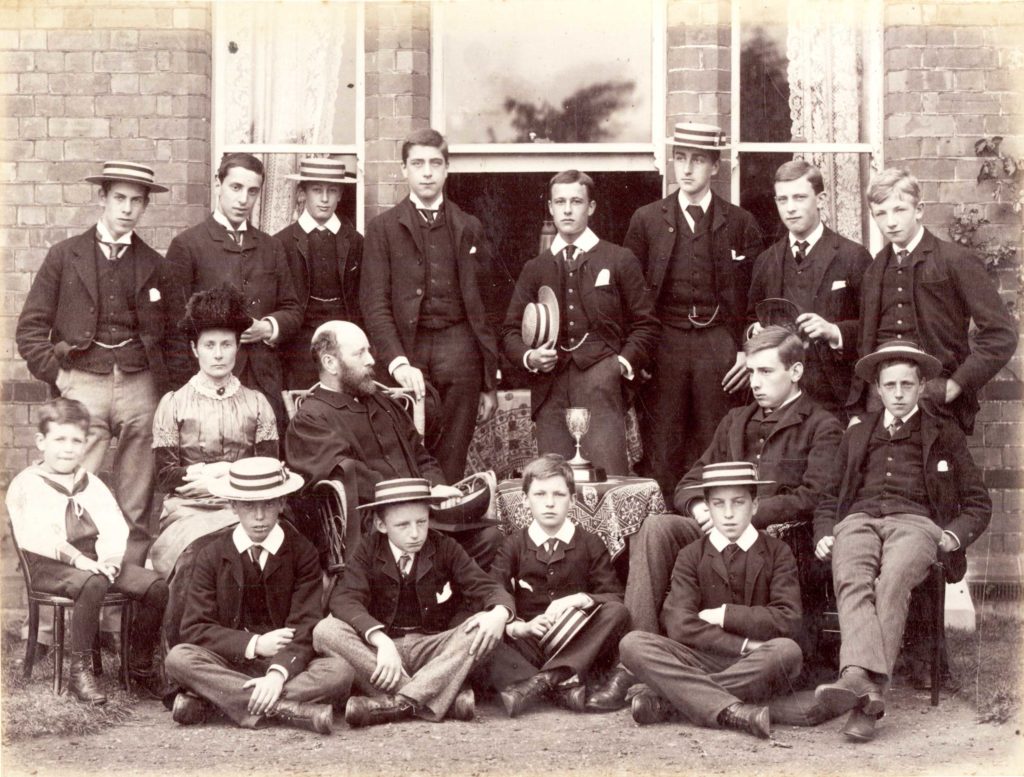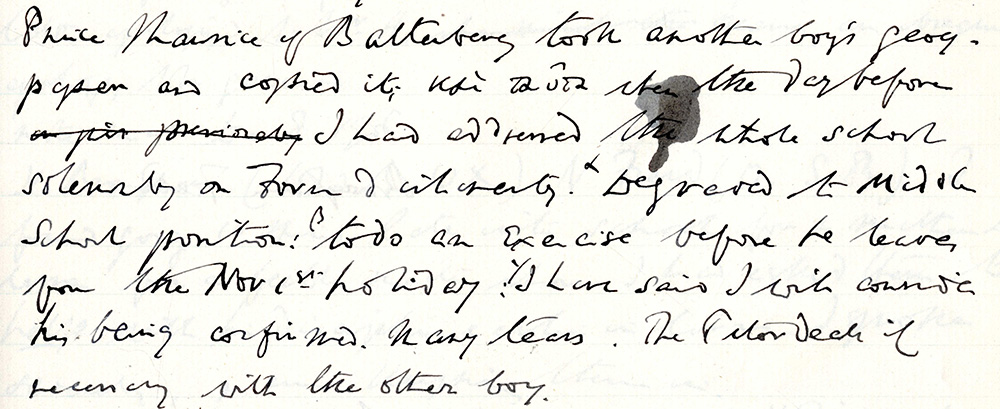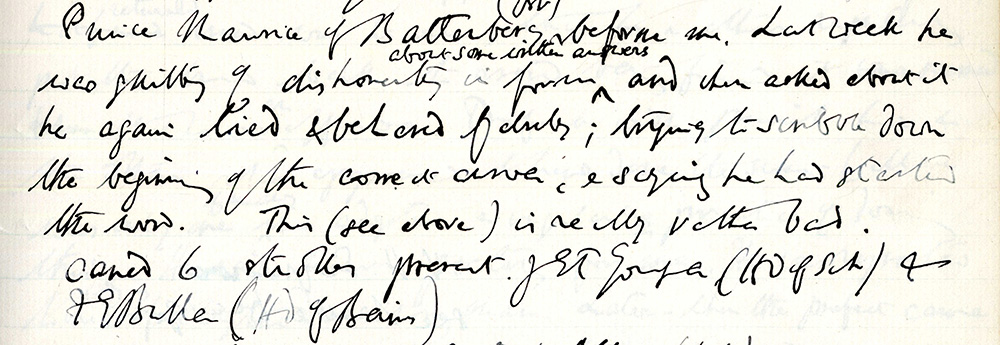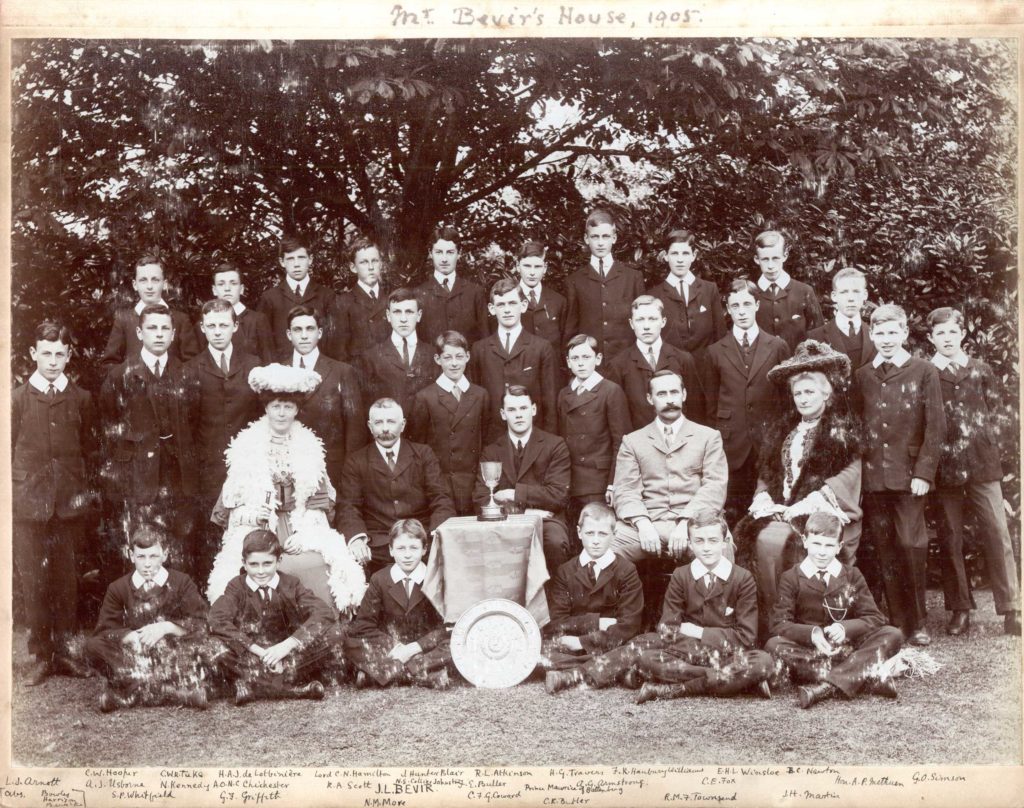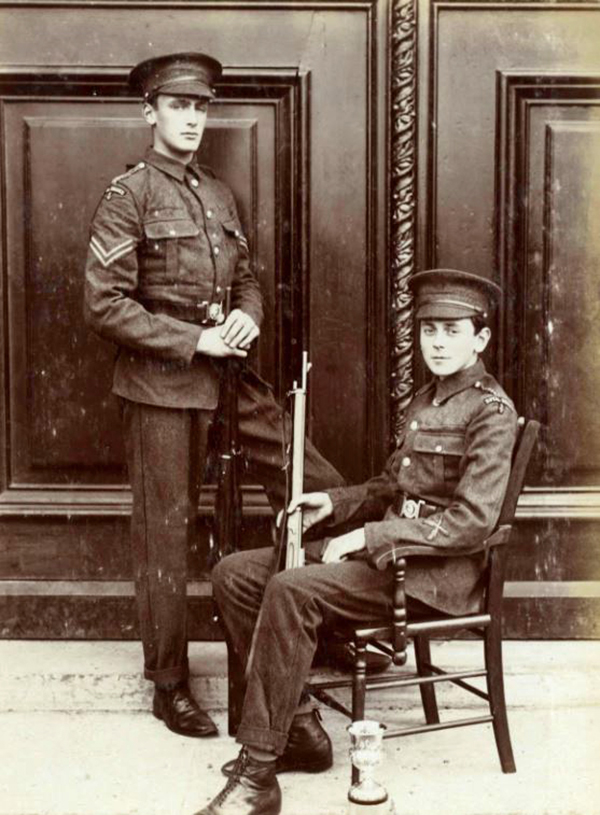Royal Students
Until the 19th century, British princes and princesses were educated at home by private tutors. The first member of the royal family to attend school was Queen Victoria’s grandson, Prince Christian Victor of Schleswig-Holstein, who came to Wellington in 1881 at the age of 13. The school was chosen because of Victoria and Albert’s close connections with it.
Prince Christian Victor joined Mr Penny’s House, later known as the Picton, and later became Head of House. A lifelong cricket enthusiast, he was in the College team for three years and Captain of Cricket in 1885. In 1893 he endowed a prize for bowling which has been awarded ever since.
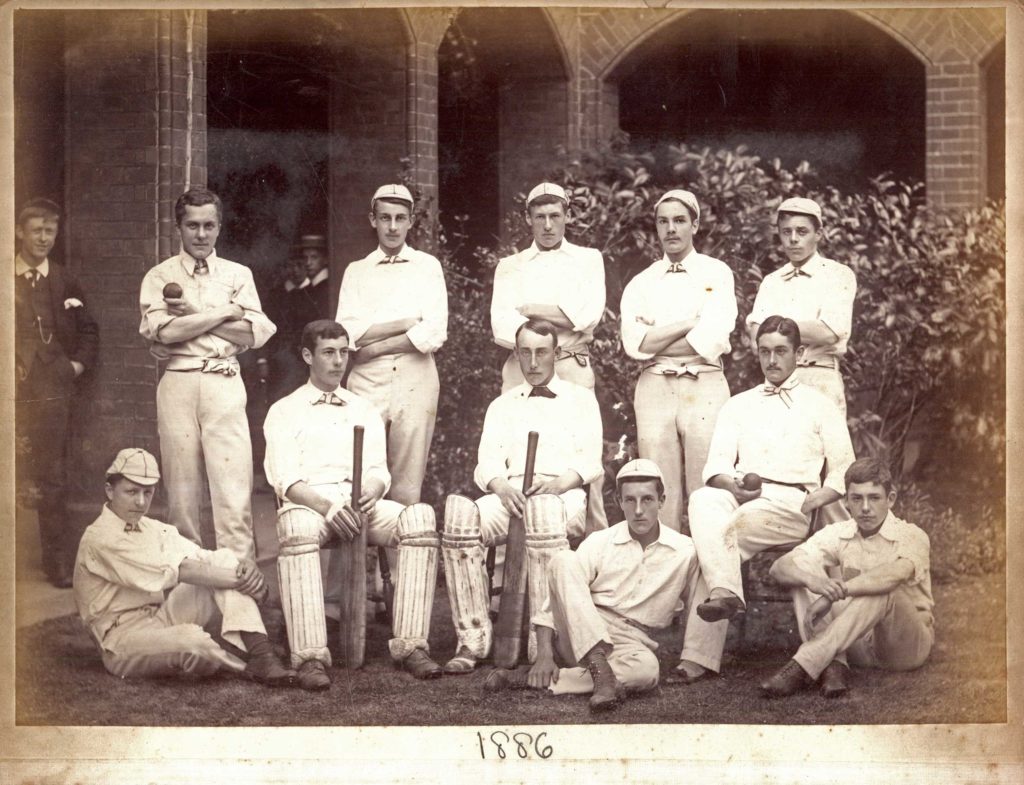
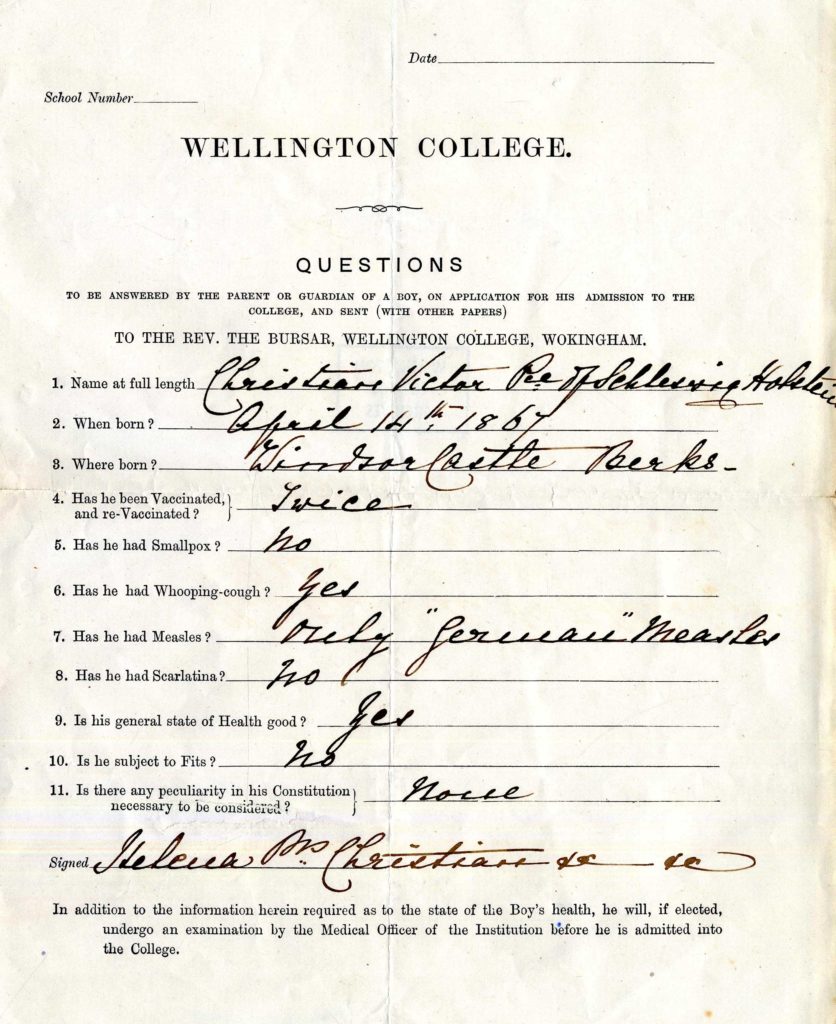
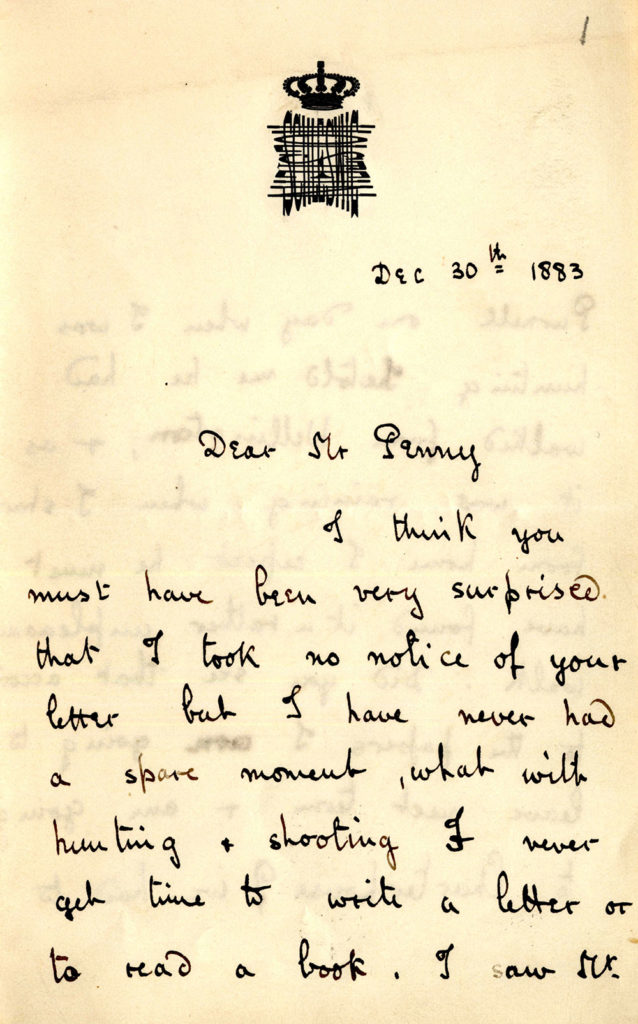
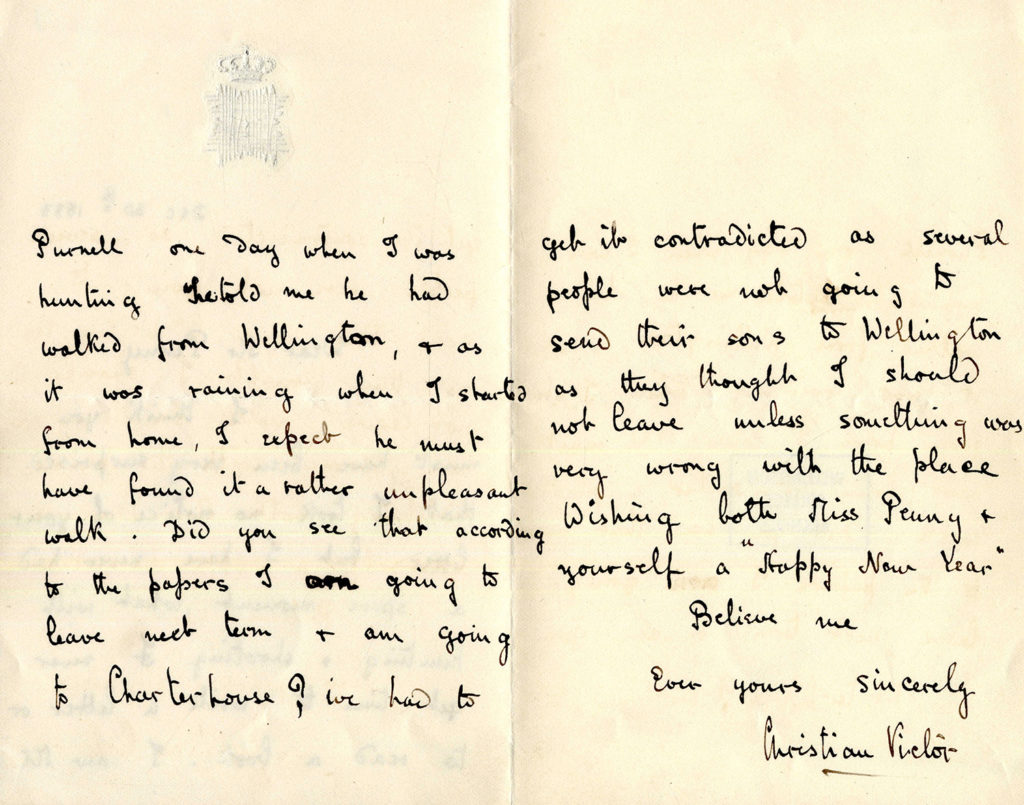
Princes Adolphus and Francis of Teck came to Wellington shortly after Christian Victor and were in Mr Kempthorne’s House, now the Stanley. Great-grandsons of George III, they were low in the line of succession and enjoyed a somewhat colourful school career, as shown in the many letters from their mother to Kempthorne in the College archives. Both boys got into trouble for being disorderly in Mathematics classes, and eventually the younger one was removed from Wellington. It is not known whether his crime was in fact, as was rumoured, throwing his Housemaster over a hedge.
The last British princes to come to Wellington were Alexander and Maurice of Battenberg, the sons of Queen Victoria’s youngest daughter, Princess Beatrice. They were in Mr Bevir’s House, now the Benson, in the early 1900s. Beatrice’s letters to the Master of Wellington, Bertram Pollock, show her concern for their progress. Alexander left after two years in preparation for joining the Navy, but Maurice stayed for five years and became a College Prefect. When Prince Maurice was killed in the First World War, Pollock was invited to speak at his memorial service and Beatrice greatly appreciated his continued sympathy.
Wellington has also had the honour of educating royal students from many other countries, including Thailand, India, Ethiopia, Malaysia and Greece.
